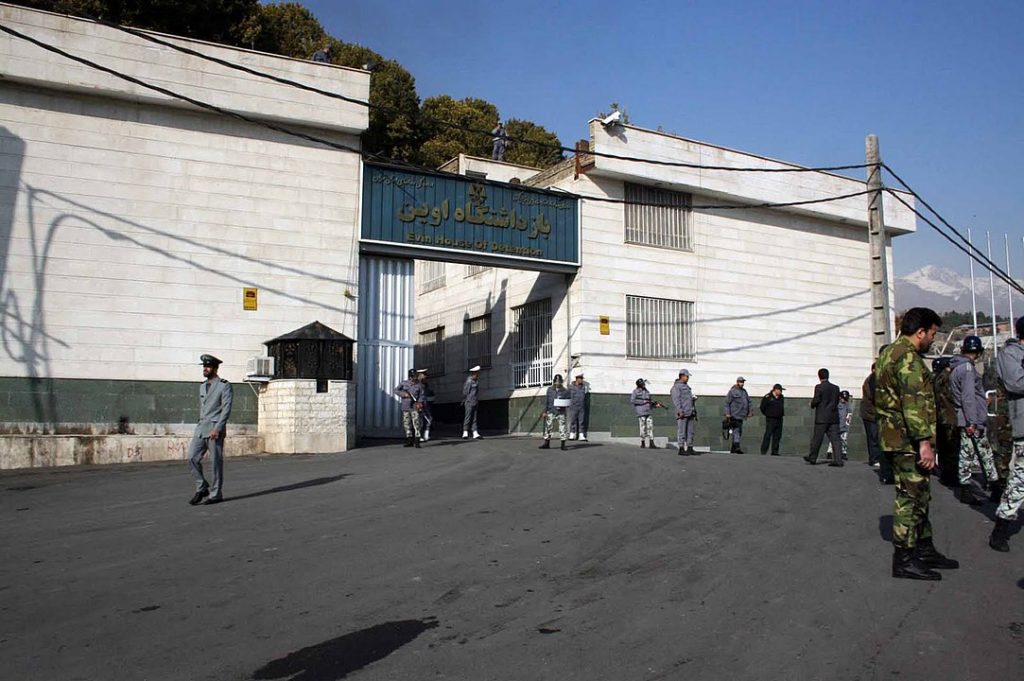
The “deplorable conditions” inside Iran’s overcrowded prisons and “cruel, inhuman or degrading treatment” of prisoners is the focus of the latest report by the UN’s special rapporteur on human rights in Iran.
Javaid Rehman’s report notes that Iran’s prisons were 27.7% above capacity – at 189,500 overall – even before the arrest of at least 7,000 protesters in November and after the release of some 61,000 prisoners to celebrate the 40th anniversary of the revolution.
He notes that overcrowding “leads to situations in which detainees are required to live for long periods in often deplorable conditions, unsuitable for human dignity and existence”, and provides a “source of infections and ill-health” and the “spread of infectious and communicable diseases”.
These comments seem particularly prescient given Iran’s current challenge to contain the rapid spread of coronavirus, amidst reports that the virus has already infected several prisons, and calls for political prisoners to be provided with furloughs to protect them.
Assyrian Christian Ramiel Bet-Tamraz was just yesterday unexpectedly released from prison three weeks ahead of schedule, while there have been reports of several other prisoners on short-term sentences being released early in an attempt to lessen the overcrowding and mitigate concerns over the potential spread of the virus.
Mr Rehman’s report notes that the conditions for, and treatment of, prisoners convicted of national security-related “crimes” – including the majority of political prisoners and other prisoners of conscience – are especially challenging, including the denial of furloughs.
Jailed human rights lawyer Amirsalar Davoudi, whose case is cited in the report, recently went on hunger strike to protest against his denial of furlough to see his young daughter.
The report also highlights the beating and torture of prisoners, denial of medical care, lack of access to a lawyer of one’s choosing, prolonged solitary confinement, forced confessions – and the broadcasting thereof – and substandard food and water.
‘Many such stories’
Article18’s advocacy director, Mansour Borji, welcomed the report, noting that “Article18 has heard many stories from Christian prisoners of conscience of such mistreatment and deplorable conditions”.
One Christian prisoner of conscience, Fatemeh (Mary) Mohammadi, recently reported being beaten so badly during her detention that the bruises were still visible on her body three weeks later.
Mary, who is due to appear in court on Monday, was also strip-searched twice by female officers, who told her that if she refused to remove her clothes, they would rip them from her, and forced to sit in a yard, for hours, in extremely cold weather and opposite the toilets.
Mr Rehman said he had received reports of “torture including beating, kicking, punching, slapping and suspension by the arms and legs”, and one former detainee saying he had been shown a “‘medical bed’ where prisoners were tied, tortured and subjected to a mock execution by hanging”.
Many Christian former detainees have detailed the many days they spent in solitary confinement.
Mr Rehman’s report notes that although the government claims it is used only in “rare instances” and for a “maximum of 20 days”, he received several testimonies from former prisoners saying they had been held there for much longer – in one case for as long as four months.
This is in line with many of the testimonies Article18 has heard – for example of Ramiel Bet-Tamraz’s father, Victor, who was held in solitary confinement for 65 days, even though Iranian state media recently claimed he had not even seen the inside of a prison.
Article18 has also heard many testimonies of prisoners in solitary confinement reporting similar treatment to the examples cited in Mr Rehman’s report, including lights being kept on for 24 hours and denial of regular access to a toilet. Mr Rehman said one female detainee was allowed to go to the toilet just twice in a 24-hour period and had to press a button to ask permission, but would often be left waiting for hours.
“As a result, she tended not to drink,” Mr Rehman noted, adding that she has never recovered from the impact on her kidneys and digestive system, despite being treated.
‘Serious impediment to due process’
Article18 has also reported several instances of Christians being denied access to a lawyer of their choosing – most recently in the case of Mary Mohammadi, while last year five Christian converts from the northern city of Rasht had their bail increased tenfold when they insisted on choosing their own lawyer.
Mr Rehman notes that prisoners charged with national-security crimes – including all current Christian prisoners of conscience – are only permitted to choose a lawyer from a list approved by the head of the judiciary, in line with article 48 of the Iranian Code of Criminal Procedure.
Mr Rehman said article 48 “undermines the independence of the legal profession” and is a “serious impediment to due process and the right to a fair trial”.
He added that a proposed amendment to the article would allow the authorities to delay legal representation for 20 days to detainees facing charges related to national security offences, terrorism or financial corruption, and that this period could even be extended.
The denial of medical care is also something Article18 has reported on frequently, such as in the cases of Zaman (Saheb) Fadaie, Nasser Navard Gol-Tapeh and Maryam Naghash Zargaran.
Mr Rehman highlights the concerning case of human rights defender Arash Sadeghi, whom he notes has been “repeatedly denied medical care” after being diagnosed with cancer.
Nasser Navard Gol-Tapeh was among a number of fellow prisoners of conscience who in November demanded urgent medical care for Mr Sadeghi.
What else does the report say?
Another focus of the report is Mr Rehman’s “shock” at “the number of deaths, serious injuries and reports of ill-treatment” of those partaking in the November protests.
As Article18 reported, an Assyrian Christian – believed to have been no more than an innocent bystander – was among the at least 304 confirmed killed.
Mr Rehman also bemoans the reported pressure being placed on families of human rights defenders, such as the arrest of a family member of prominent women’s rights defender Masih Alinejad.
Article18 noted in its latest annual report how 2019 was the year in which Iranian intelligence agents began to harass family members of Iranian Christian converts who had fled the country, even though they may not be Christians themselves, such as in the case of Vahid (Nathan) Roufegarbashi and his wife Mahsa, both of whose parents were harassed.
Mahsa’s father, Esmaeil Maghrebinezhad, was arrested and charged with “propaganda against the state and insulting the sacred Iranian establishment”. He was recently sentenced to three years in prison.
Mr Rehman also said he remains “highly concerned” about the denial of education to members of religious minorities.
Article18 reported in December how, before her arrest, Mary Mohammadi was kicked out of her university, without explanation, on the eve of her exams.
Mr Rehman said he had continued to receive reports of discrimination against minorities and expressed concern about a mooted parliamentary bill that would criminalise members of groups the government considers to be “misguided”.
He noted that the bill “could make it a criminal offence to follow certain religions” – for example the Baha’i Faith – while it would also almost certainly provide further weight in cases against members of house-churches.
Recommendations
Among two pages of recommendations, Mr Rehman calls for protection for religious and ethnic minorities, and for Iran to “address all forms of discrimination against them and [to] release all those imprisoned for having exercised their right to freedom of religion or belief”.
He calls for “persons accused of any crime” to be given access to a lawyer of their choosing “during all stages of the judicial process, including during the initial investigation and interrogation stage”, and provided with legal aid as needed.
And he calls for medical care to be “urgently provided” to detained individuals who need it, “without discrimination on grounds of political or legal situation, ethnicity, religion, political opinion, gender, sexual orientation or other status”.
Among many other recommendations, he calls for reductions in overcrowding; for prisoners to be provided with food of “appropriate nutritional value, quantity and quality”; and for furlough and family visitation rights for all prisoners.
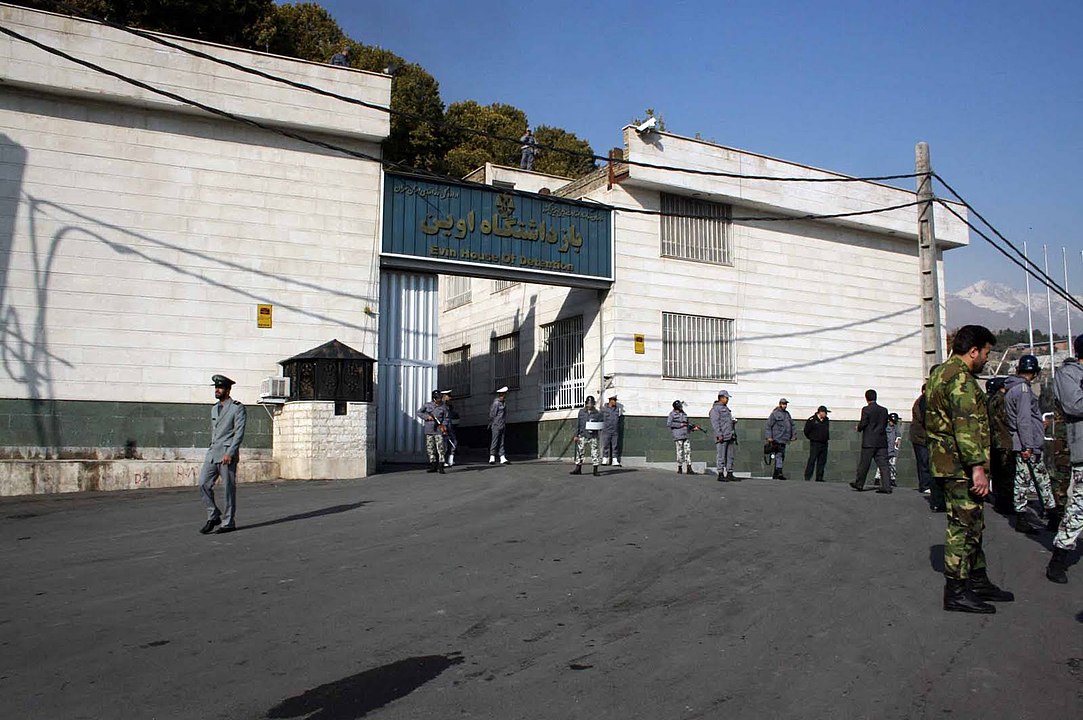
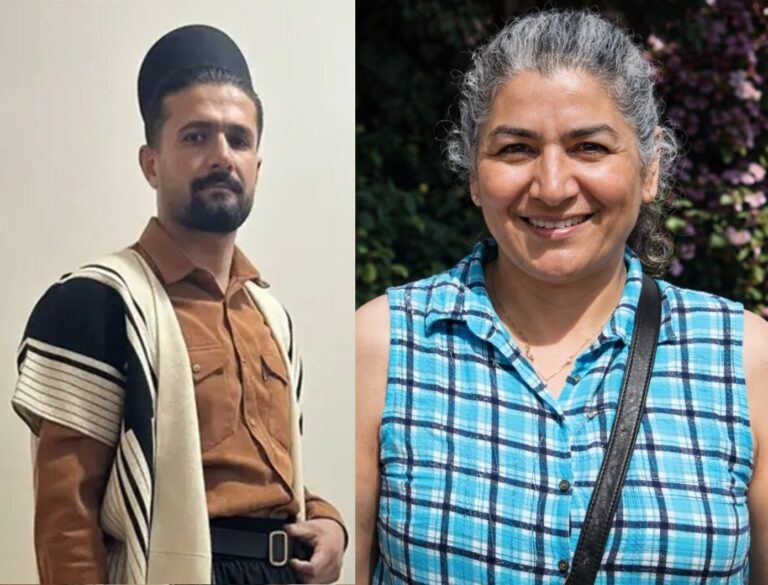
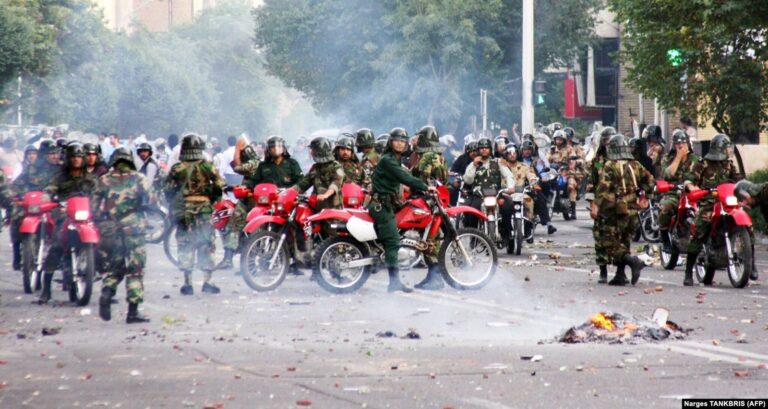
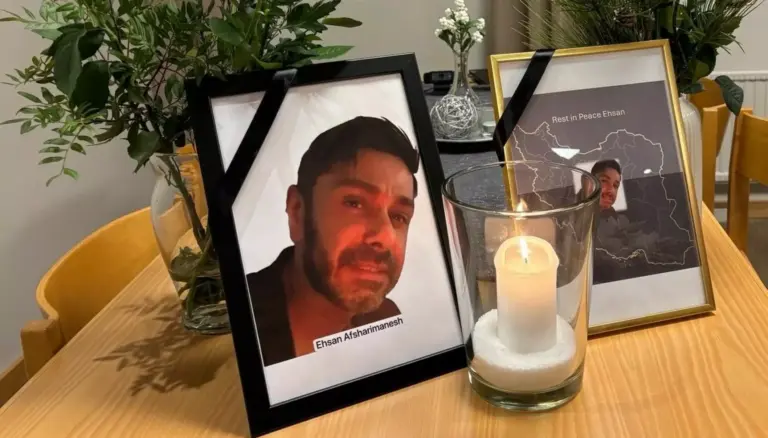
0 Comments
Trackbacks/Pingbacks